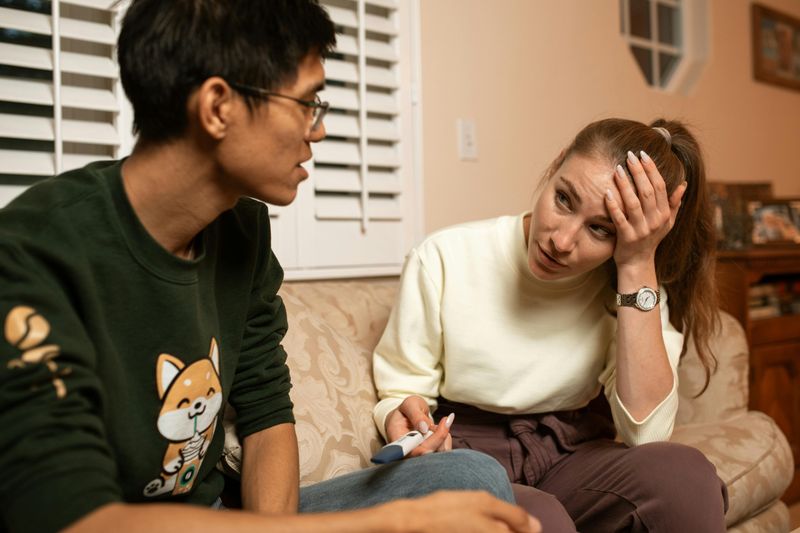10 Indicators You’re Putting in More Effort Than You Should

Whether with friends, family, or romantic partners, one-sided relationships can drain your energy and happiness. Recognizing when you’re overextending yourself is the first step toward healthier connections. These signs will help you spot imbalances and take steps to restore fairness in your relationships
1. You’re the Communication Initiator

The text thread shows your blue bubbles filling the screen, with their gray responses few and far between. Days might pass before they answer, yet you respond within minutes when they reach out.
Friends comment that you’re always the one organizing get-togethers or checking in. When you step back as an experiment, the relationship goes silent.
This one-way communication pattern creates an exhausting cycle where you constantly wonder if they care enough to reach out first. Healthy relationships involve mutual effort in staying connected—both parties should initiate contact regularly.
2. Your Schedule Bends While Theirs Stays Rigid

Rearranging your workday, canceling gym sessions, or postponing other plans has become your norm whenever they can meet. Meanwhile, their schedule remains untouchable, and they rarely acknowledge your flexibility.
You find yourself making excuses for their inflexibility while ignoring the growing resentment inside you. Perhaps you’ve started lying to others about why you’re canceling plans with them.
Calendar compromises should flow both ways. When you’re constantly the one shifting appointments and sacrificing personal time, you’re signaling that your time and commitments matter less than theirs. Balance requires mutual accommodation.
3. Your Gestures Go Unmatched

That thoughtful birthday gift you spent weeks planning? They responded with a last-minute card. Or perhaps you regularly bring them coffee just how they like it, but they’ve never once returned the gesture.
Small acts of kindness—sending encouraging texts, remembering important dates, offering help during tough times—consistently flow from you to them. The imbalance isn’t about keeping score, but about noticing patterns of one-way consideration.
Reciprocity doesn’t mean identical exchanges, but there should be mutual thoughtfulness. When your caring actions consistently disappear into a void of appreciation, it signals an unhealthy imbalance that can gradually deplete your emotional reserves.
4. Your Needs Take a Back Seat

“I’m fine with whatever you want” has become your catchphrase, even when you have strong preferences. You’ve swallowed complaints about being interrupted or ignored because you’re afraid of seeming high-maintenance.
Maybe you’ve sat through countless movies you dislike or eaten at restaurants that don’t accommodate your dietary needs. Small compromises have snowballed into a pattern of self-neglect.
Healthy relationships make space for everyone’s needs. Constantly minimizing your preferences teaches others that your happiness is optional. Remember: expressing needs isn’t demanding—it’s essential communication that gives others the opportunity to care for you properly.
5. Your Heart Races Ahead Too Quickly

You’ve already imagined introducing them to your parents while they’re still deciding if they want a second date. Their casual mention of a concert months away has you mentally planning the entire weekend together.
Emotionally investing before seeing equal interest creates vulnerability to disappointment. You might find yourself analyzing their every word and action for hidden meanings or future potential.
Pacing matters in healthy connections. When you sprint emotionally while they stroll, you create an imbalance that often leads to heartache. True connections develop naturally, with both people moving forward at a comfortable, mutual pace that feels secure rather than anxious.
6. You’re the Future Planner, They Live in the Moment

“We should definitely do that sometime” they say vaguely when you suggest concrete plans. Meanwhile, your calendar has tentative dates marked for events months ahead, waiting for their confirmation.
You find yourself strategizing ways to secure commitments or feeling anxious when plans remain undefined. Their non-committal responses leave you wondering where you stand.
This planning imbalance often reflects different investment levels. Someone equally interested will help create future moments together, not just passively enjoy the present ones you arrange. Balanced relationships feature mutual excitement about building a shared future, whether for next weekend or next year.
7. Your Emotional Wellbeing Hinges on Their Attention

The notification sound from your phone triggers an immediate dopamine rush or anxiety crash. Their brief responses send you analyzing tone and word choice for hidden meanings.
Good morning texts from them make your day, while their silence ruins it. You’ve noticed friends commenting on your mood swings that seem to correlate with this person’s attention patterns.
Emotional dependency creates dangerous power imbalances. When someone else controls your happiness through their engagement level, you’ve surrendered too much personal power. Healthy relationships enhance your life without becoming your entire emotional regulation system. Your baseline contentment should remain stable regardless of another person’s attention.
8. Your Boundaries Dissolve to Keep the Peace

You said you’d never date someone who smokes, yet here you are, opening windows and buying air fresheners instead of addressing the issue. Or perhaps you’re staying up hours past your bedtime despite early work commitments because they prefer late-night calls.
Each crossed boundary feels like a small sacrifice at first. Soon, you barely recognize the strong standards you once maintained.
Boundaries protect your wellbeing and values. Consistently compromising them for someone who won’t respect your limits creates dangerous precedents. Healthy relationships involve mutual respect for each other’s boundaries, not one person constantly adjusting their comfort zone while the other remains inflexible.
9. Your Wallet Opens More Frequently Than Theirs

“I’ll get the next one” they say, but somehow that moment rarely arrives. Looking at your recent transactions, you notice a pattern—dinners, gifts, tickets, and even everyday items predominantly paid for by you.
Financial imbalance isn’t always about dollar amounts. It’s about proportional contribution and the intentions behind spending patterns. Perhaps you’ve justified the disparity because you “don’t mind” or “make more money.”
Money flows reflect deeper relationship dynamics. When financial responsibility consistently falls on your shoulders without acknowledgment or reciprocity, it often signals broader imbalances. Healthy relationships feature mutual investment—both financial and emotional—with each person contributing in ways that feel fair and appreciated.
10. Your Energy Depletes Instead of Multiplies

After spending time together, you feel mysteriously exhausted rather than refreshed. You might need recovery time after interactions that should theoretically boost your spirits.
Conversations feel like performances where you’re working hard to maintain connection or avoid conflict. You’ve caught yourself rehearsing topics beforehand or analyzing interactions afterward.
Healthy relationships energize both participants, creating more vitality than either person brings individually. When you consistently feel drained, your subconscious might be processing the imbalance your conscious mind hasn’t acknowledged. True connection should leave you feeling seen, appreciated, and more alive—not depleted from the effort of maintaining a one-sided dynamic.

Comments
Loading…